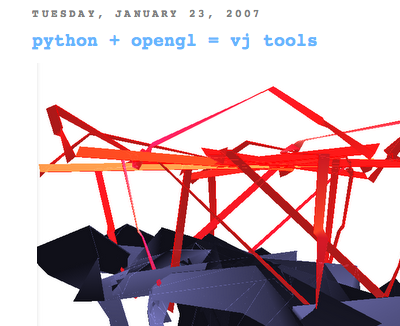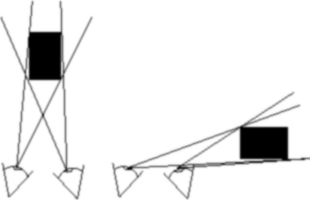vjkrute
June 12th, 2007
another mathematician’s blog on math, music, art, and stuff.
incidentally he is at TU Berlin at the moment…
randformblog on math, physics, art, and design |

another mathematician’s blog on math, music, art, and stuff.
incidentally he is at TU Berlin at the moment…
The Technical University of Munich (TUM) has handed out a styleguide defining a corporate design for the university (agency: ediundsepp , for the webdesign see also mytumportal). From the guide:
“Jedes Mitglied der TUM wird durch den schriftlichen und grafischen Auftritt automatisch zum Werbetraeger der Universitaet.
Unser Anspruch muss darin bestehen an jedem Ort, in jedem Schriftstueck und der Begegnung mit allen Mitgliedern der TUM, die Technische Universitaet Muenchen spuerbar zu machen.”
Today is “Lange Nacht der Wissenschaften” in Berlin.
The math group at TU Berlin displays their 3d virtual theatre, virtual reality applications in mathematics, a 3d printer, and much more.
According to Heise online the german government in its function as Presidency of the European Council wants to come to an agreement for the new EU passports before the end of July. This may spur the discussion about finger prints in passports on an european level.
->for DIY directions of how to make an artificial fingerprint mask from an arbitrary fingerprint see computer magazin c’t page 102 (unfortunately in german and not online)
I am aware of the fact that it may be funny if a mathematical physicist speaks about theatre.
Ist das ein goldener Schnitt? Is this a golden mean? Ceci un nombre d`or?
Besides the already mentioned digital technique of rapid prototyping the digital technique of laser cutting was under scrutiny at the designmai exhibition. See above image of a gold foil cut by laser by Tord Boontje. You can see the shape of my body reflected as shadow while taking the photograph.
A regular Rubik’s cube has 43,252,003,274,489,856,000 permutations (different positions) and it is still unknown how many moves are needed to solve the cube, that is to find a shortest path from a given permutation to the trivial one. If you count turning a face as a move it is known that there are permutations that need 20 moves. This is a lower bound meaning that one knows that there are permutaions that need at least 20 moves, but there might even be permutations that need more. Last year the upper bound by Silviu Radu was 27 moves but Dan Kunkle and Gene Cooperman now showed that it can be done faster: With massive computer aid they showed that 26 face moves are enough.
So the situation is: there are permutations that need 20 or more moves and any permutation can be solved with at most 26 moves. The gap of 6 between these two numbers gives us the following bounds: We can expect at least one more paper and at most 6 more papers that reduce the gap.
The above pictured pocket cube has only 3,674,160 permutations and optimal solutions for all of them can be generated by a brute force algorithm.
this is an update to The eighties recycle themselves and rubiks robots.

SeeReal showed a working prototype of a realitme holography display at DisplayWeek. The trick seems to be to reduce the vast amount of data usually needed for computer generated holography by tracking the eyes and generating only small parts of of the actual (full) hologram since only a small viewing angle is needed for each eye. The prototype was reported to show only a red image.
via heise news
My classmate needs again to publish a short story for her class (in german). Just ignore this post.